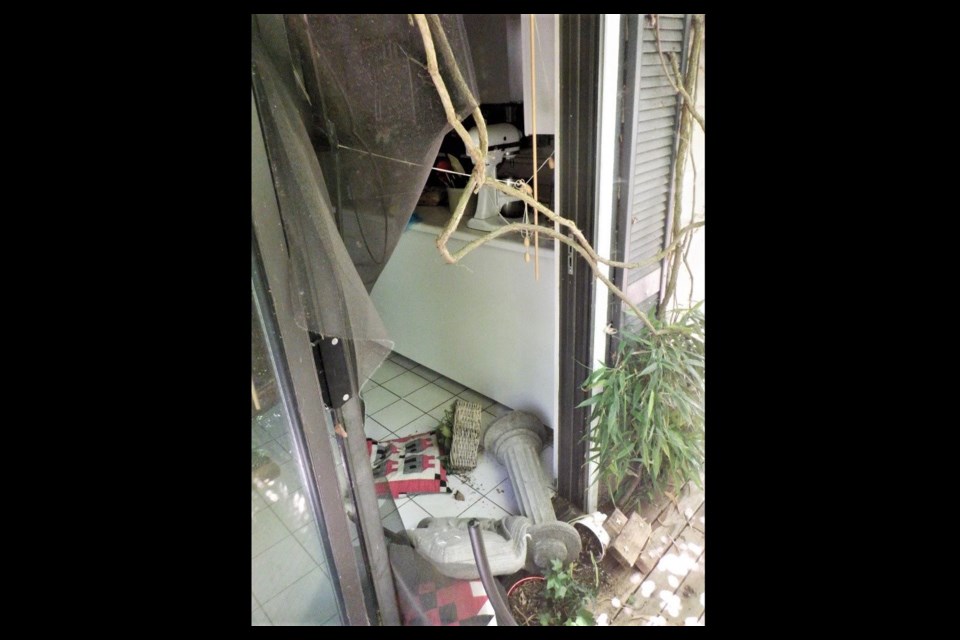As the province prepares for its next heat wave, the BC Conservation Officer Service is reminding residents who live in close proximity to wildlife to keep doors closed.
With temperatures rising, it can be tempting to leave the backdoor open to let in a breeze. But this can have dire consequences if a black bear gets a whiff of cooking, trash, or any other attractant and decides to pop in out of curiosity.
The Conservation Officer Service released a warning on July 22, urging residents in areas where bears may wander close to communities, that leaving doors open may attract unexpected visitors. With a slow start to the summer, the usual food supply for bears was depleted, making them all the more likely to follow the scent of someone’s dinner.
"Last year as temps were high, conservation officers in one region dealt with three calls of bears entering houses in one day — all through open doors," stated the agency in the post.
According to Lesley Fox, executive director for The Fur-Bearers — a wildlife protection charity and a member of the BC Bear Alliance — prevention is the key when it comes to limiting contact with bears.
Fox says that there are two main rules everyone should follow: limit attractants and do not feed the bears.
“That can't be emphasized enough. Attractants can be many different things and so bears are always on the move and they're always looking for food,” Fox said.
Attractants can be anything from pet food left outside, dirty barbecues that in the summer months can attract bears with smells of grease, coolers left unattended, dirty recycling and open compost.
According to WildSafeBC, a human-wildlife conflict reduction program managed by the BC Conservation Foundation, garbage is reported in 60% of calls to the Conservation Officer Service when an attractant is identified. They also warned that fruit left on treas may seem harmless, but will condition the bears to return to the community.
In the event a bear does make its way into your home, Fox says to use a firm voice, assert yourself, and put your arms up or grab an umbrella to fill as much space as possible.
“You want to give bears as much space as you can, and you want to give them a lot of exits. So you don't want to corner them and you don't want to approach them. You want to give them a lot of space, a lot of exits, and in an assertive tone. And in many cases, that's enough for them to leave and move on,” she said.
Fox emphasized that while it does occur, it is very rare for a bear to enter someone’s home. She says that by nature black bears are social, curious, and fairly docile.
She noted that bears are an essential and natural part of our landscape here in B.C.
“They're here to stay and for that reason, we can't kill or relocate our way out of these problems, which is why the emphasis is on prevention, attractant management, closing your door, bringing in pet food from outside and being a responsible tourist or camper. So the onus is really on us to help keep these animals and ourselves safe.”
For more information on bears and how to protect your home, Fox recommends StashYourTrash and The Get Bear Smart Society, which outlines the best practices when it comes to living alongside wildlife.




